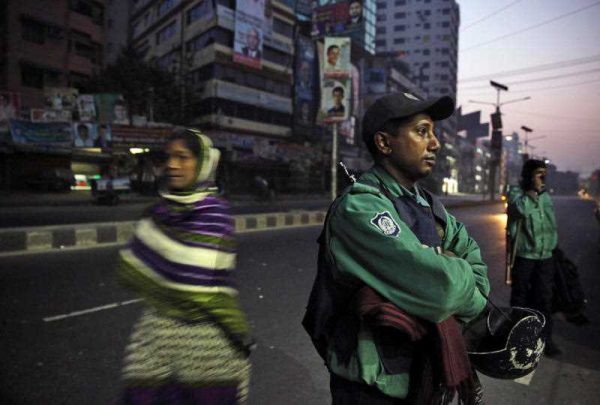The recent deportation of 26 Bangladeshi terrorist suspects from Singapore is evidence that a segment of the Bangladeshi diaspora community overseas is also affected by violent ideologies. With this backdrop, the effectiveness of the current counterterrorism response of the Bangladesh government appears to be inadequate.
The major problem is that Prime Minister Sheikh Hasina’s government is still in a state of denial. The government has failed to acknowledge that there are groups and individuals within Bangladesh who support transnational terrorist movements like IS and Al Qaeda. The Bangladesh government needs to give a clear message that it remains committed to its much publicised policy of zero-tolerance against terrorism.
Thanks to this zero-tolerance policy, the country made a dramatic comeback from the 1999–2005 era of poor security sector governance and deadly terrorist attacks. Still, after a relative calm, violent extremism increased again following the 2013 killing of a secularist blogger by Ansarullah Bangla Team (ABT)/Ansar al-Islam — a local proxy group of Al Qaeda in the Indian Subcontinent (AQIS).
The trend continues and has intensified due to the rise of IS, the launch of AQIS and the desire of local groups and individuals to be a part of what they see as a ‘global struggle for Islam’. A segment of the Bangladeshi diaspora is attracted to global brands of terrorism. And online extremist materials in the local language have created an open and conducive space for both the rapid indoctrination of the Bangladeshi diaspora and the formation of overseas cells of local Bangladeshi groups.
Since 2013, Bangladesh has been witnessing low intensity terrorist attacks, mostly in the form of targeted assassinations. But there is evidence that local groups are rapidly increasing their operational capabilities to mount deadly and large-scale attacks — particularly in the major cities like Dhaka and Chittagong. Critical infrastructure including airports, sea ports, military bases, oil depots, naval ships, luxury hotels, shopping malls and embassies are high value targets.
The recent developments indicate that there is competition among the Islamist militant groups and their splinter cells to get recognition from global terrorist brands, particularly IS. This quest for recognition is partially motivated by ideology. But a major motive is to receive funding and logistical support to occupy territory and to establish what they perceive to be an Islamic state based on their interpretation of Sharia law.
The rise of violent extremism in Bangladesh will have serious consequences for two of its immediate neighbours — India and Myanmar. Several publications of IS and AQIS have expressed interest in using Bangladeshi territory as a stronghold to further expand their operations into these two countries. In this regard, the regional network of Jama’atul Mujahedeen Bangladesh (JMB) and its links to Rohingya militants need to be watched closely.
The India–Bangladesh–Myanmar border is already a major conduit of transnational crimes and illicit activities such as drug trafficking and human smuggling. The area has also previously been used by Rohingya militant groups such as the Rohingya Solidarity Organisation (RSO), Harkat ul Jihad al Islami-Arakan (HuJI-A) and Tehrik-e-Azadi Arakan (TAA). The RSO is reportedly regrouping and trying to get fresh recruits. Considering the group’s past history, it is highly likely that it will work closely with local militant groups in Bangladesh.
Bangladesh has yet to acknowledge that local radicals and terrorist groups are increasingly linked into international extremist organisations, and make it a priority to neutralise these linkages. It is vital that counterterrorism remains depoliticised. But it is also important to dismantle extremist elements embedded within the Islamist political domain. Extremist links of the Islami Chatra Shibir (ICS), the student wing of the country’s largest Islamist party, Jamaat-e-Islami, is a case in point. Similarly, an Islamist vigilante group known as Hefazat-e-Islam is also known to have extremist elements.
Bangladesh needs to be more transparent in addressing the weaknesses in investigation and prosecution. It is important to scale up the security of critical infrastructure such as airports. Bangladesh’s existing security arrangements are neither adequate nor professional by any international standard. If Bangladesh is to sustain its impressive economic growth, which is currently more than 6 per cent per annum, it must not underestimate the threat of violent extremism.
The government’s recent decision to set up a new police unit targeting counterterrorism and transnational crime is a welcome move. Still, it remains to be seen how the new unit will set its priorities. It is high time that Bangladesh considers extending its strategic counterterrorism capabilities beyond traditional security measures. Creating a terrorist rehabilitation program in the prisons would be one such way to begin this process.
Iftekharul Bashar is an Associate Research Fellow at the S. Rajaratnam School of International Studies (RSIS), Nanyang Technological University, Singapore.

